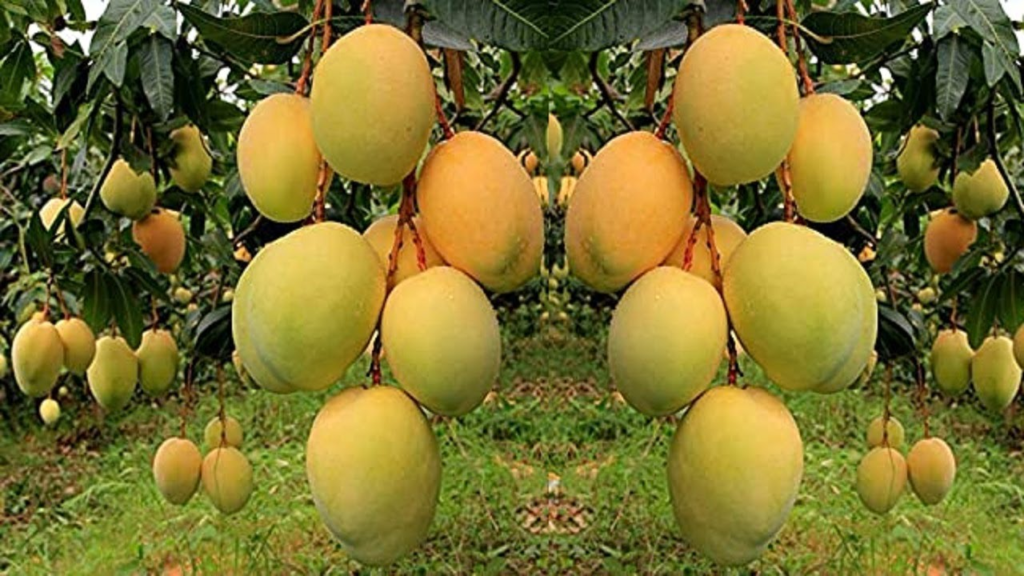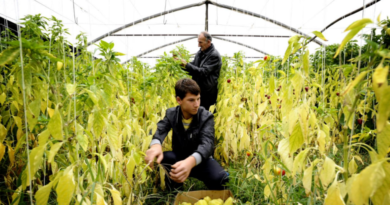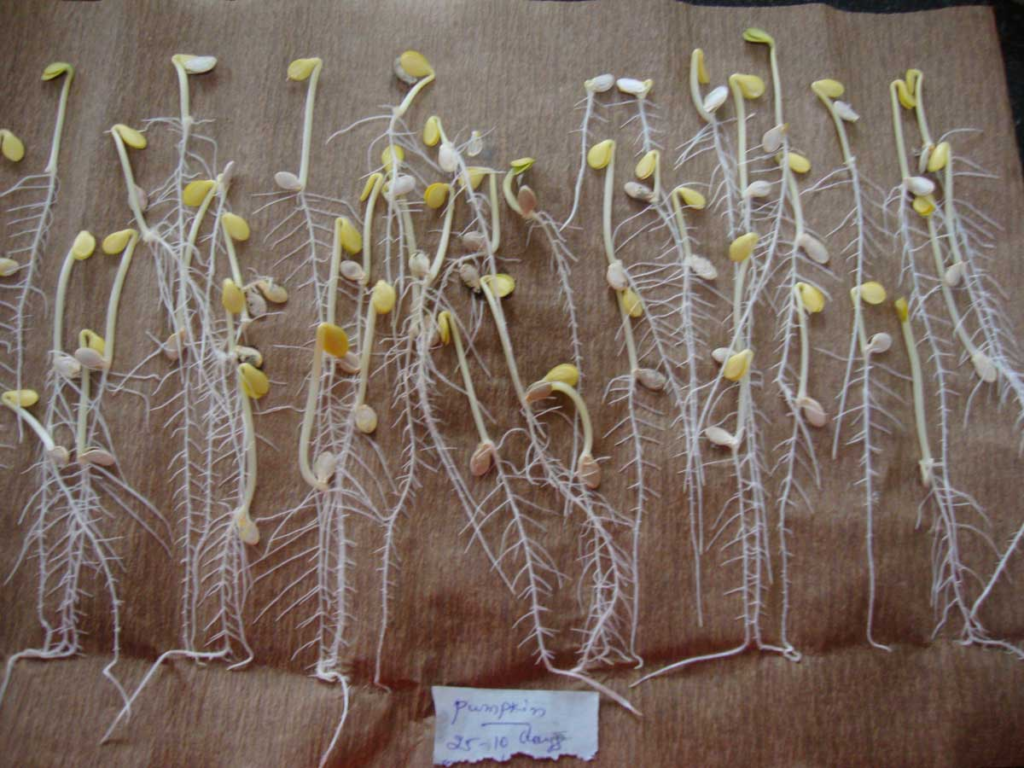Mango Grower
Mango Grower details click here
 Mango Farmer: A farmer manages the cultivation of mangoes in a particular part of the world and is directly responsible for the purchase of commercial seeds to the sale of farm produce in the market.
Mango Farmer: A farmer manages the cultivation of mangoes in a particular part of the world and is directly responsible for the purchase of commercial seeds to the sale of farm produce in the market.
Brief description of the job: The person at work manages the planting mango in accordance with the recommended practices of a given agricultural economic environment and obtains the expected yield.
He also oversees the hygiene and post-harvest harvesting of the mango plant and ensures its uniform sale.
Your Qualities: A Mango farmer should have good physical strength and the ability to do manual labor.
One must be able to manage staff groups and must have good organizational skills.
He must be able to maintain human relations, quality of work and productivity Mango Grower.

Prepare planting material for Mango cultivation Mango Grower(6 month course):
In order to be effective, each user / individual must be able to:
PC1. identify the agricultural area where the agricultural condition is taken up by
PC2. list the types that are suitable for
PC3 location. choose a variety of attractive Investment plantings To be competent, the user / individual must be able to:
PC4. identify various suppliers / suppliers (including government / university facilities) of planting materials, if the farmer does not repair
PC5 planting equipment. get quality seedlings and planting from each source ‘pesticides’, ‘survival rate’ etc.
PC6. find the current price of
PC7 plant material. buy planting equipment for
PC8. find a suitable storage area (free of germs and have indoor climates varieties such as grafting, flowering, inarching, etc. The appropriate storage time for planting is written in the accepted practice. University University / Department or as prescribed by the pesticide manufacturer Mango Grower
To be competent, the user/ individual must be able to:
PC18. read the safety precautions in the label/instruction that comes with the pesticide
PC19. keep ready all the necessary first aids as suggested in the safety measures
PC20. use all the necessary safety material and follow all the preventive measures PC21. avoid any injury during use / application of pesticide
Organizational Context (Knowledge of the company / organization and its processes):
The user / person at work needs to know and understand:
KA1. applicable law, standards, policies, and procedures in the workplace
KA2. appropriate health and safety requirements applicable to workplace
KA3. your job role and responsibilities and sources of work-related information
KA4. who can request assistance to obtain work-related information, specifications and
KA5 funding. the importance of compliance with health, hygiene, safety and quality standards and the impact of non-compliance on consumer and business
KA6. documents and related procedures applicable to the context of the work


B. Technical Knowledge Mango shop Grower:
The person at work needs to know and understand:
KB1. climatic conditions for the mango farm
KB2. type of field soil
KB3. the most common diseases and pests in the
KB4 area. the right time to plant mangoes based on weather, humidity, etc.
KB5. time for planting varieties
KB6. yield of various varieties
KB7. resistance to pests and diseases
KB8. resistance to various abiotic pressures
KB9. advantages and disadvantages of replanting and direct sowing methods
KB10. production of various planting materials such as etricertil approach, root stock, etc.
KB11. various sources of access to true and pure planting material
KB12. methods of assessing the quality of investment assets
KB13. suitable storage method for planting materials
KB14. various pests and diseases where plant material can be trapped by
KB15. ways to plant planting material
KB16. chemicals to be used in the treatment of seeds, their properties and the amount to be used Mango Grower.
Core Skills/Generic Skills:
Learning Skills The user / person at work needs to know and understand: how to do
SA1. learn about the latest varieties of mangoes through
SA2 newspapers and magazines. obtain up-to-date information on brochures, pamphlets, and product information sheets Oral communication (Listening and Speaking Skills) The user / employee needs to know and understand: how to do
SA3. maintain effective working relationships
SA4. liaising with others such as farmers, official / affected stakeholders
SA5. seek advice from adults / professionals
B. Making Professional Skills Decisions The user / employee needs to know and understand:
SB1 method. make a decision on the location of the affected work especially whether you are preparing the planting material or buying it with
SB2. make decisions on investment strategies
SB3. decide on the appropriate chemicals to be used during the Treatment and Planning Program The user / person at work needs to know and understand: the
SB4 method. plan and organize plant crèches and field processes starting with soil preparation to
SB5 harvest. arrange meetings / demonstrations with the Departments of Agriculture whenever the need for Customer Centricity The user / employee needs to know and understand how to do this:
SB6. manage relationships with workers and other neighboring farmers
SB7. manage relationships with extension staff Problem Solving User / employee needs to know and understand: how to
SB8. think about the problem, test the solutions (s) available and use the biggest / best solution (s)
SB9. Identify problems quickly and take solutions to delay delays Analytical Thinking The user / person at work needs to know and understand: how to
SB10. view and store the equipment and equipment needed for weed management Key considerations
The user / person at work needs to know and understand: how
SB11. use, analyze, and evaluate information collected from observation, experience, consultation, or communication, as a guide to thought and action
SB12. do his own work and study


Prepare land and do planting for Mango cultivation Mango Grower:
In order to be effective, each user / individual must be able to:
PC1. estimates
PC2 farming land. create drainage systems suitable for
PC3. select the appropriate field layout (square system, rectangular system, triangle system, quincuncial system, contour system) depending on the variety, expected yield and canopy
PC4 arrangement. mark the building in areas appropriate to
PC5. create holes at the right depth for
PC6. irrigate the holes at the right prices and allow to dry Growth Graphs To be effective, the user / individual must be able to:
PC7. place compost / plant material dug
PC8. read the number of graffiti and planting stages for
PC9. water installation and install the same
PC10. protect the frame from effects such as heat in the construction of the shed, etc.
PC11. apply compost to preserve soil moisture
PC12. select and plant the right combinations of selected mango varieties Mango Grower.
Organizational Context (Knowledge of the company / organization and its processes):
The user / person at work needs to know and understand:
KA1. applicable law, standards, policies, and procedures in the workplace
KA2. appropriate health and safety requirements applicable to workplace
KA3. your role and responsibilities and job information resources
KA4. who can request assistance to obtain work-related information, specifications and
KA5 funding. the importance of compliance with health, hygiene, safety and quality standards and the impact of non-compliance on consumer and business
KA6. documents and related procedures applicable to the context of the work
Technical Knowledge:
The individual on the job needs to know and understand:
KB1. various machines that prepare the field and dig pits for mango cultivation
KB2. importance of land leveling as per different methods of irrigation
KB3. various methods of land preparation and their influence on the soil tilth
KB4. various land layouts for mango cultivation
KB5. graft handling techniques
KB6. appropriate watering of grafts


A. Core Skills/ Generic Skills:
Learning Skills The user / person at work needs to know and understand: how to do
SA1. learn about the latest mango varieties by reading
SA2 newspapers and magazines. Excellent information for reading brochures, pamphlets, and ion product sheet information Oral communication (Listening and Speaking Skills) The user / person at work needs to know and understand:
SA3 method. maintaining effective working relationships with neighboring farmers
SA4. maintaining working relationships with farm workers
SA5. maintain and share information with extension staff
B. Developing Professional Skills To create a user / person on the job they need to know and understand: how
SB1. SB2 grafting planting techniques. land planning and spatial distribution
SB3. Water needs to send a connection system and Planning The user / person at work needs to know and understand: how to
SB4. plan and organize mango nurseries and field processes starting with soil preparation to
SB5 harvest. organize meetings / protests with the Departments of Agriculture whenever the need for Customer Centricity The user / employee needs to know and understand: how to
SB6. manage relationships with workers and other neighboring farmers
SB7. manage relationships with extension staff Troubleshooting Troubleshooting User / person at work needs to know and understand:
SB8 method. think about the problem, test the solutions (s) available and use the biggest / best solution (s)
SB9. Identify problems quickly and take immediate solutions to delay delays Analytical Thinking The user / person at work needs to know and understand: how to
SB10. monitoring and storing the equipment and equipment needed for weed management Key thinking The user / person at work needs to know and understand: how Mango Grower.
Manage post plantation nursing in Mango cultivation Mango Grower:
In order to be effective, each user / individual must be able to:
PC1. engage in constructive pruning in the early stages of the plant in areas appropriate to the plant’s
PC2 time. practice back to pruning mango plant at the appropriate stage of
PC3 plant growth. tap the correct location on the
PC4 plant. Prune to follow the accepted method of
PC5. wear areas after pruning with chemicals suitable for
PC6. kept the earth clean after the pruning
PC7. keep the cupboard in the right structures – open center, ladder, common, shrink – depending on the earth’s structure, variety and
PC8 production. grasp heavy branches and poles to ensure proper bedding
PC9. make sure the post canopy management has enough sunlight under the mango tree
Organizational Context (Knowledge of the company / organization and its processes):
The user / person at work needs to know and understand:
KA1. applicable law, standards, policies, and procedures in the workplace
KA2. appropriate health and safety requirements applicable to workplace
KA3. your job role and responsibilities and sources of work-related information
KA4. who can request assistance to obtain work-related information, specifications and
KA5 funding. the importance of compliance with health, hygiene, safety and quality standards and the impact of non-compliance on consumer and business
KA6. documents and related procedures applicable to the context of the work Mango Grower
B. Technical Knowledge:

The individual on the job needs to know and understand:
KB1. appropriate pruning techniques and schedule based on the variety
KB2. appropriate location on the plant to prune KB3. pruning equipment usage
KB4. chemicals to be applied on the pruned parts in plant
KB5. canopy formations
Core Skills/ Generic Skills:
Learning Skills The user / person at work needs to know and understand how: in
SA1. the latest varieties of mangoes by reading
SA2 newspapers and magazines. up-to-date information on brochures, pamphlets, and product information sheets Oral communication (Listening and Speaking Skills) The user / person at work needs to know and understand: how to do
SA3. maintaining effective working relationships with neighboring farmers
SA4. maintaining working relationships with farm workers
SA5. maintain and share information with extension staff
B. Developing Professional Skills To create a user / person on the job they need to know and understand: how
SB1. decide on the affected
SB2 work area. decide on the type of canopy Plan and edit User / person at work needs to know and understand: how to make
SB3. arrange meetings / exhibitions with the Departments of Agriculture whenever
SB4 is required. plan and arrange wild hens and field processes from land preparation to harvest Customer Centricity The user / occupant needs to know and understand:
SB5 method. how to manage relationships with workers and other neighboring farmers
SB6. how to manage relationships with additional
SB7 staff. work with
SB8 mango experts. make and use
SB9 exposure visits. attend refreshing training Troubleshooting User / person at work needs to know and understand: how to make
SB10. think about the problem, explore possible solutions (s) and use the largest / best solution (s)
SB11. Identify problems quickly and take solutions to delay delays Thinking Consideration The user / person at work needs to know and understand: how
SB12. the use of various
SB13 pruning materials. view and store the equipment and equipment needed for weed control
SB14. view and maintain the equipment and equipment required for land preparation and re-planting / direct planting Critical Thinking The user / person at work needs to know and understand:
SB15 method. use, analyze, and evaluate information collected from observation, experience, consultation, or communication, as a guide for thought and action
SB16. do his own work and study Mango Grower
Nutrient Management in fruit crops:

In order to be effective, that person must be able to:
PC1. understand basic and minor nutrients through their
PC2 functions. inspect the soil for its nutrient and fertilizer requirements in an authorized laboratory
PC3. compile soil test report Apply organic and chemical fertilizers To be effective, the person must be able to:
PC4. select the appropriate fertilizer that includes the compost of the farm yard of its
PC5 system. fertilize the various stages of the
PC6 plant cycle. nutrient utilization according to the soil test report
A. Organizational Context (Knowledge of the company / organization and its processes):
The user / person at work needs to know and understand:
KA1. applicable law, standards, policies, and procedures in the workplace
KA2. appropriate health and safety requirements applicable to workplace
KA3. your job role and responsibilities and resources about
KA4 work. who can request assistance to obtain work-related information, specifications and
KA5 funding. the importance of compliance with health, hygiene, safety and quality standards and the impact of non-compliance on consumer and business
KA6. documents and related procedures applicable to the context of the work Mango Grower
Guidelines for Assessment:
- Criteria for assessment for each Qualification Pack will be created by the Sector Skill Council. Each Performance
Criteria (PC) will be assigned marks proportional to its importance in NOS. SSC will also lay down proportion of marks
for Theory and Skills Practical for each PC. - The assessment for the theory part will be based on knowledge bank of questions created by the SSC.
- Assessment will be conducted for all compulsory NOS, and where applicable, on the selected elective/option Mango Grower
NOS/set of NOS. - Individual assessment agencies will create unique question papers for theory part for each candidate at each
examination/training center (as per assessment criteria below). - Individual assessment agencies will create unique evaluations for skill practical for every student at each Mango Grower
examination/training center based on this criterion. - To pass the Qualification Pack , every trainee should score a minimum of 70% of aggregate marks to successfully
clear the assessment. - In case of unsuccessful completion, the trainee may seek reassessment on the Qualification Pack.





